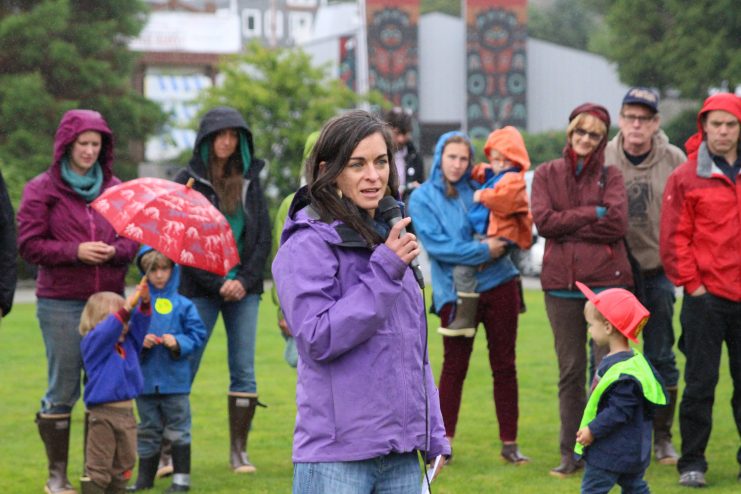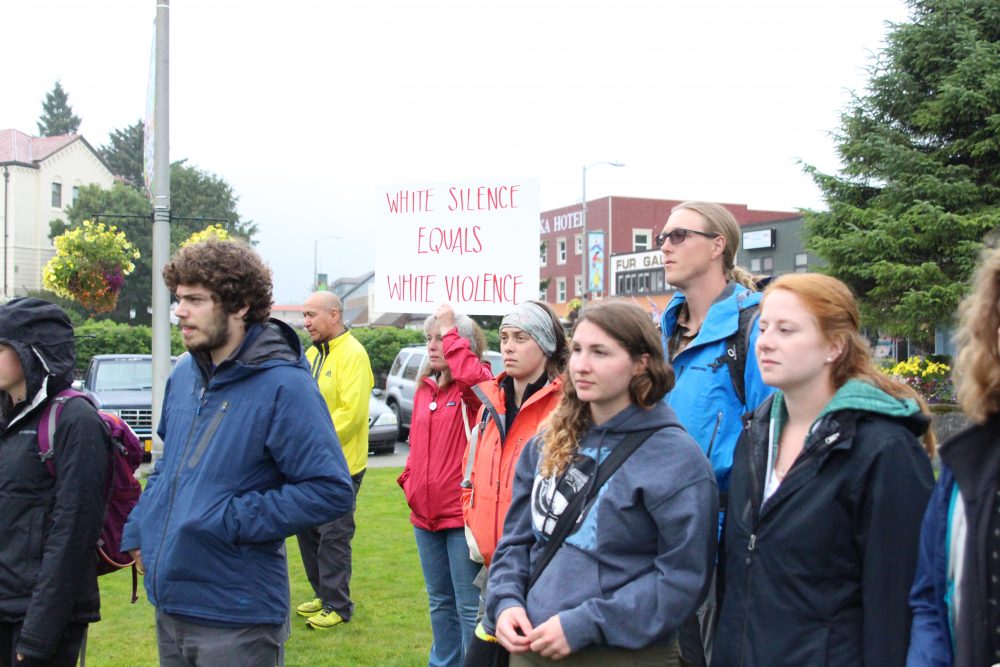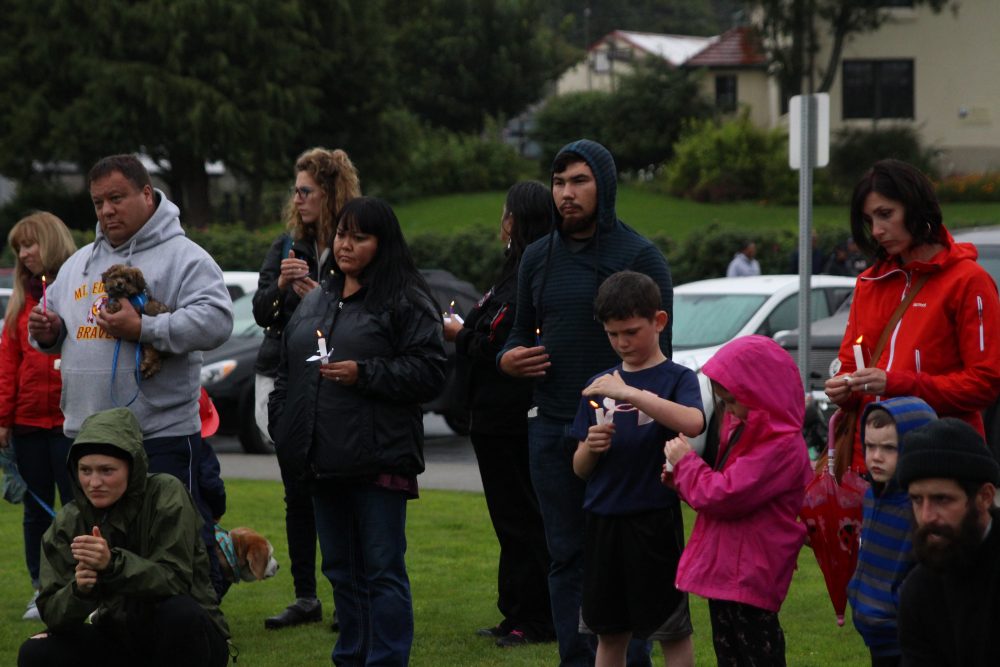
President Trump said again today the white nationalists who marched in Charlottesville, Virginia weren’t solely to blame for the violence there. As he did this weekend, Trump suggested the left-wing counter-demonstrators were also culpable.
“You had a group on one side that was bad and you had a group on the other side that was also very violent,” Trump said.
Trump also defended the protestors. He said some weren’t neo-Nazis – they just didn’t want to see a Confederate general’s statue come down, a position he sounded sympathetic to.
“This week it’s Robert E. Lee,” Trump said. “I notice that Stonewall Jackson’s coming down. I wonder: Is it George Washington next week, and is it Thomas Jefferson the week after?”
Meanwhile, the events in Charlottesville continued to ripple across the country, with protests to condemn racism and to mourn for the counter-protester who was killed Saturday.
About 50 people gathered over the weekend in Homer, and some 300 came out Sunday in downtown Anchorage.
On Monday, dozens of people joined a candlelight vigil in Sitka.
A little girl watched her mother light a candle at Sitka’s peace vigil, which drew over 100 people around a large totem pole in the center of town. Some brought tea lights cupped in seashells, others housed candles wrapped in aluminum foil
The candles are for creating “a safe space for community, in solidarity with Charlottesville and beyond.” That’s how organizer Hannah Guggenheim described the event on Facebook.
Holding a microphone, Guggenheim began the vigil with a quote from anti-Apartheid revolutionary Nelson Mandela.
“’No one is born hating another person because of the color of his skin or his background or religion. People must learn to hate and if they learn to hate, they can be taught to love.’” Guggenheim added, “So that’s why I’m here. That’s why we’re all here, today.”
Many attended to talk about the nature of hate in 2017 America and how to move in a direction of love in Sitka. For a town where the majority of the population is white, the gathering was fairly diverse and candid about Sitka’s own history of colonial occupation on Tlingit land.

Lakota Harden brought sage to burn. Dale Williams recalled how in 1965 someone mounted a burning cross on the Sheldon Jackson Campus, in response to a local Civil Rights march.
Dionne Brady-Howard hoped the events in Charlottesville would spur further dialogue on not only what happened this weekend, but just how deeply racism in America runs.
“If nothing else, it’s brought to light how much hatred there still is and things like institutional racism and generational trauma across our nation,” Brady-Howard said.
Martina Kurzer grew up in Germany. She said video footage of the street fighting in Virginia brought flashbacks to stories her grandparents told her, “stories of street fights between Communists and Nazis in the year 1925.”
For Elizabeth Herendeen, who moved to Sitka three months ago, this is all new. She grew up in Charlottesville and attended the University of Virginia, where the “Unite the Right” rally converged.
“Just talking to my mom this morning, people are afraid to go out and live their lives and just to run errands or go to work,” Herendeen said.
Alt-right leaders have vowed to return to her hometown.

In April, the Charlottesville City Council voted to remove a statue of the Confederate General Robert E. Lee. Opponents sued and a district court judge postponed the decision for six months. The case is still in court, making the city a battleground for white supremacists to push for its protection. In June, the City Council renamed Lee Park — where the statue is erected — Emancipation Park.
David Kanosh shared how the possibility of racially-motivated violence was a reality for him in 2003. He was beaten in a bathroom in Sitka’s ANB Harbor.
“I was beaten and left for dead by some people who carved a swastika in my chest. Do I have fear of going out that door? Of course. I always have that fear in my heart now. But I always face that fear with love because I always feel the people of Sitka that came out when I was in the hospital,” Kanosh said. “Will this dialogue continue? It must always continue.”
Sometimes that dialogue takes shape with music.
Joining hands again, the vigil closed with the an anthem from the Civil Rights era — the gospel song, “We Shall Overcome.”
Alaska Public Media’s Liz Ruskin contributed to this story.




